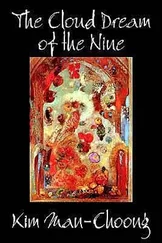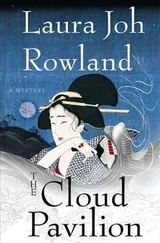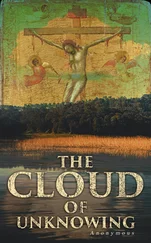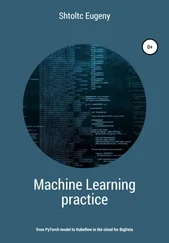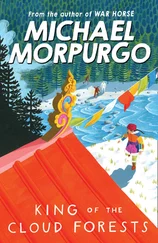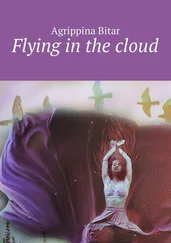Matt Richtel - The Cloud
Здесь есть возможность читать онлайн «Matt Richtel - The Cloud» весь текст электронной книги совершенно бесплатно (целиком полную версию без сокращений). В некоторых случаях можно слушать аудио, скачать через торрент в формате fb2 и присутствует краткое содержание. Жанр: Триллер, на английском языке. Описание произведения, (предисловие) а так же отзывы посетителей доступны на портале библиотеки ЛибКат.
- Название:The Cloud
- Автор:
- Жанр:
- Год:неизвестен
- ISBN:нет данных
- Рейтинг книги:3 / 5. Голосов: 1
-
Избранное:Добавить в избранное
- Отзывы:
-
Ваша оценка:
- 60
- 1
- 2
- 3
- 4
- 5
The Cloud: краткое содержание, описание и аннотация
Предлагаем к чтению аннотацию, описание, краткое содержание или предисловие (зависит от того, что написал сам автор книги «The Cloud»). Если вы не нашли необходимую информацию о книге — напишите в комментариях, мы постараемся отыскать её.
The Cloud — читать онлайн бесплатно полную книгу (весь текст) целиком
Ниже представлен текст книги, разбитый по страницам. Система сохранения места последней прочитанной страницы, позволяет с удобством читать онлайн бесплатно книгу «The Cloud», без необходимости каждый раз заново искать на чём Вы остановились. Поставьте закладку, и сможете в любой момент перейти на страницу, на которой закончили чтение.
Интервал:
Закладка:
The morning he was to be hanged, the executioners came to his cell to find him gone. He’d bribed one of the guards by promising that, if he was set free, he’d hack into a Russian state bank and have $100,000 wired to the guard’s family living in New Hampshire. That wasn’t the fancy part. Once he was loosed, Andrew snuck into a local news station, got onto a computer, hacked into the country’s central weather mainframe, and managed to set off a warning of a rare and imminent attack of cyclones. In the chaos, he piloted a plane out of the country.
The rest, in a nutshell: Italy, then New York, then Berkeley, where he got a PhD in computer engineering, then Palo Alto, where after a few entrepreneurial fits and starts, he created EDGE, the algorithm that helps you find things on the Internet and that is the kernel upon which Google and everyone else that really matters on the Internet builds their business.
He’s now standing at a podium, the creator of the New Media Award for Public Service Journalism, telling a humble version of the escape story, minus anything self-aggrandizing, but it is plenty aggrandizing of me, embarrassingly so.
“I sat in that six-foot by six-foot dank Romanian jail cell, an atheist devoted only to numbers, and I prayed. I asked God for a journalist,” Andrew says. “I prayed for someone who would tell truth to the world.”
I look up at the three dozen tables filled with Friends of Andrew, faces held rapt over their pear soup. There is no way that I can follow this guy. I’m wearing rumpled clothes from the just-in-case bin I keep at the office, having taken a rushed shower in the bacteria-smeared bathroom in the hallway, and then bought a tie from the Green Love shop. If you look too closely at the faint horizontal image on the tie, you can make out a couple having sex standing against a tree. On the plus side, at a distance, the blue tie simply looks nicely patterned, and, plus, it’s made of hemp. I pull my sport coat closed and button it over the tie.
“And we don’t just need a free press that is permitted and encouraged to expose injustices big and small. That is not enough,” Andrew continues. He’s physically sturdy, a cyclist, I’d guess, with a fitness room in his basement, but with gray dominating his still-full hair, a presage of the frailty that will creep up on him in ten years. “We need individual journalists like Nathaniel who aren’t afraid to take on the jailers of the truth.”
He launches into my boilerplate biography: my upbringing in Colorado, my medical-school training, a summary of my stories about how digital gadgets can have an addictive quality that, if not managed, can lead to a short attention span and disrupt our ability to effectively create, and analyze, information. Affect our memory and our capacity to connect with other people.
As he makes me sound worthier than I am, I scan the room looking at the faces of the captivated. They are taking in the Silicon Valley icon, the immigrant who symbolizes the essence of the meritocracy that the region considers its defining characteristic, and someone who can write a check that in a nanosecond changes the fortunes of their start-up or foundation. They also, apropos of nothing, have the usual range of medical conditions. A woman in the front row in a smart blue suit can’t suppress a deep cough consistent with the tail end of walking pneumonia, less throaty than bronchitis; two tables away, a retiree curled unnaturally over his lunch like a question mark looks to have camptocormia, a bent spine we now know to have degenerative origins, not psychological ones, as once thought. Across from him sits a rail-thin man with angular features and a bald head so shiny that I wonder about seborrhea, excessive secretion of the sebaceous glands. Oily skin.
And then there’s the man in the doorway. It’s not pathology that catches my eye, but the long, black leather coat, which seems out of place inside in midday Palo Alto, and, more so, the stare, the crew cut, like AstroTurf, covering the big, square head. Arms crossed, he’s looking at me intently, right until I look back at him. He averts his eyes. He curls out of the doorway.
“Before I sum up,” Andrew says, “I want to take a brief moment to do some unctuous politicking with the people who really set me free in this lifetime. To my beautiful and stalwart wife”-a few in the crowd coo-“thank you. And to my first Silicon Valley partner, Gils Simons, an operational genius, many thanks for turning ones and zeroes into a fortune, and for continued friendship.”
I look at Gils. He’s a fifty-year-old bland Boy Scout, tight haircut, sweater vest, the quintessential organizational guy who was the behind-the-scenes straight man responsible for the boring business side of early Leviathan Ventures while Andrew played mad digital scientist.
Andrew pauses. “Nathaniel, Nat, if I may,” he then says after his beat, and I can feel him looking at me. I look back at him from my seat at the front table. “It has not been easy for you. You’ve fought through great personal and professional obstacles the last few years to remain devoted to your craft and to the pursuit of truth. While the rest of us have blindly embraced technology, me as much as anyone, you’ve shown us its limitations and even its potential dangerous side effects.”
He looks at the audience, another pause, this time to reinforce the idea that he, one of the Internet’s pioneers, appreciates a skeptic. I think: I wish Faith could bear witness-not Polly, I realize with some mild surprise, but the compassionate brunette from the subway.
“I give you Nat Idle, the recipient for this year’s award in public health journalism. He is the essence of the journalist that I, a seventeen-year-old hours from being hanged, prayed to God to deliver.”
As I stand, I feel no particular joy; this pomp and rhetoric is less about me than about Andrew reinforcing the value of an award he created.
The crowd claps as I shake Andrew’s smooth, confident hand.
At the podium, I clear my throat. “When I was seventeen, I was a hacker too. I spent a summer trying to break into Jane Messersmith’s brassiere.”
Bad line, but big laugh from a sympathetic audience.
“Abject failure. If only I could’ve convinced her we were in for an attack of cyclones, she might’ve huddled with me on the couch.”
“Andrew,” I direct this to him. “We should work together in the future.”
Smaller laugh. Time to get back to the prepared remarks, such as they are.
I thank Andrew and his wife, Catherine, and the audience.
“Hundreds of thousands of years ago, humans trolled the jungles, living amid the trees, running from tigers, and chasing rabbits,” I begin. “Today, our jungle is a seventeen-inch monitor where we run from bad banner ads and instant-message interruptions from our bosses, sprint to keep up with tweets and Facebook status updates, use always-on connections to chase deals from mountaintops or even bathroom stalls.”
Time for the numbers. I point out that the households in the United States consume on average 33.8 gigabytes of information, the equivalent of 100,000 words delivered in text, audio, video, graphics, constant bursts of data. I explain that one question driving my journalistic efforts has been a simple, dumb question: What does it mean that our environment has transformed virtually overnight into pixilated, liquid screens, delivering danger and opportunity every millisecond?
“We once adapted to the jungle by walking upright or brachiating.” I launch into a stock line. “So how are we adapting to the digital jungle, for good and for ill?”
Lots of nods from the audience. I take them in with a pause. I feel a wave of light-headedness, a lukewarm hot flash. I take a deeper breath. Andrew approaches the podium, and hands me water. I sip.
Читать дальшеИнтервал:
Закладка:
Похожие книги на «The Cloud»
Представляем Вашему вниманию похожие книги на «The Cloud» списком для выбора. Мы отобрали схожую по названию и смыслу литературу в надежде предоставить читателям больше вариантов отыскать новые, интересные, ещё непрочитанные произведения.
Обсуждение, отзывы о книге «The Cloud» и просто собственные мнения читателей. Оставьте ваши комментарии, напишите, что Вы думаете о произведении, его смысле или главных героях. Укажите что конкретно понравилось, а что нет, и почему Вы так считаете.

